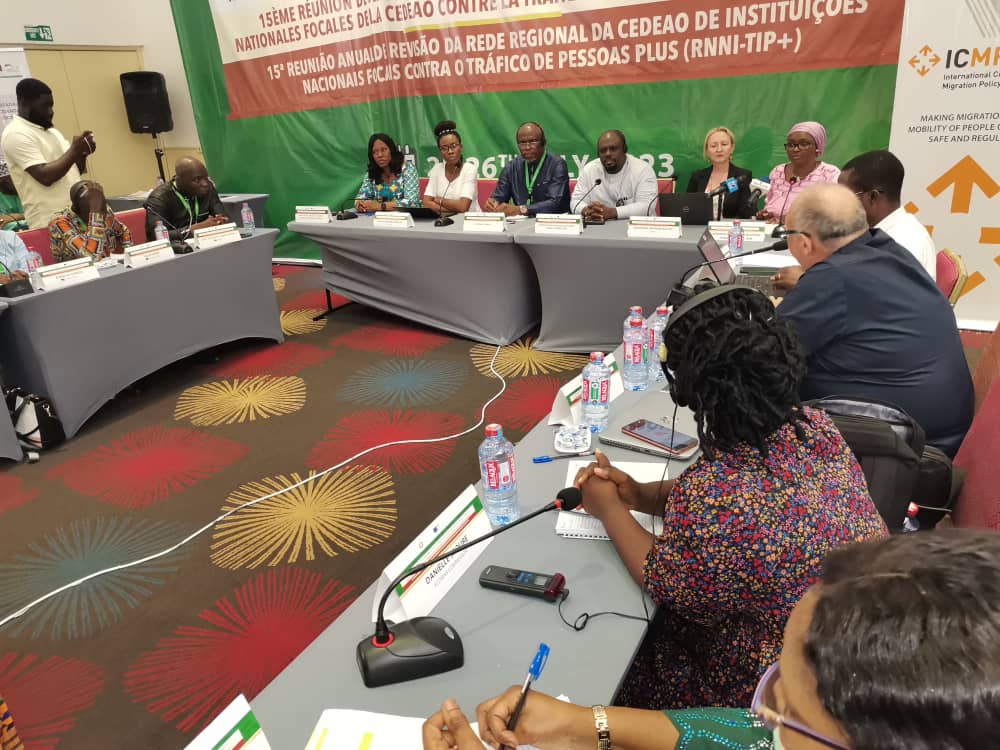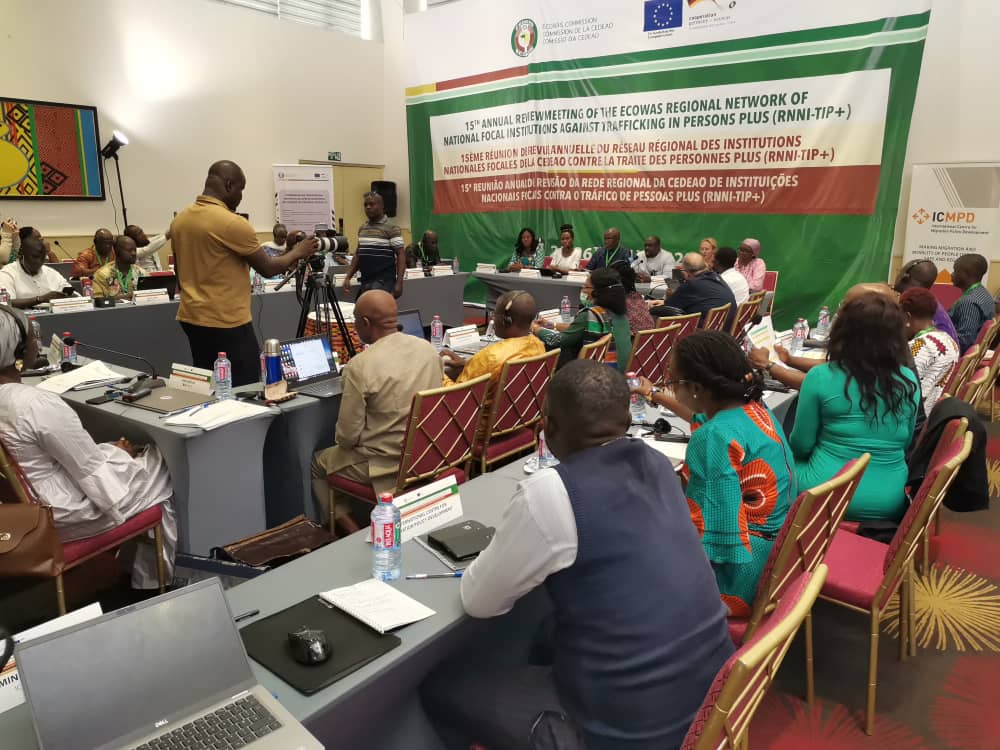By Muniratu Akweley Issah
Accra, July 27, GNA – Ms Francisca Oteng-Mensah, Deputy Minister of Gender, Children, and Social Protection, has urged ECOWAS member states to remain committed to the subregion’s recommendations and plan of action to combat human trafficking.
She also pushed them to adopt innovative strategies being developed for the prevention, protection, and punishment of human trafficking.
The Deputy Minister made the call at the closing session of the 15th Annual Review meeting of the ECOWAS Regional Network of National Focal Institutions against Human Trafficking in Persons (RNNI-TIP+), hosted in Accra.
The review meeting covered human trafficking, its criminalities, and its consequences in the subregion.
Ms Oteng-Mensah stated that the members’ steadfast passion and dedication would be essential to ensuring positive change in the lives of many individuals who had been victimized by the menace.

“We have delved into the root causes of trafficking, the vulnerabilities that make individuals susceptible to exploitation, and the methods employed by organized crime groups to perpetuate these heinous acts. This reflects our collective determination to tackle this issue head-on,” she said.
The Deputy Minister also asked ECOWAS member nations to work together to strengthen capacity-building initiatives, foster cross-border collaboration, and improve communication networks in order to respond to human trafficking in a comprehensive and effective manner.
Madam Fatou Ndiaye Diallo, Chief of Mission for the International Organization for Migration (IOM) in Ghana, Togo, and Benin, expressed the mission’s commitment to assisting the ECOWAS subregion in combating human trafficking.
“We have collectively reaffirmed our commitment to combating human trafficking and addressing the root cause of the menace in our societies.
“The invaluable insights and experiences shared would undoubtedly contribute to the formulation of comprehensive ECOWAS and its member states strategies and policies to combat crime,” she noted.
Ms Melita Gruevska Graham, Head of the International Centre for Migration Policy Development’s (ICMPD) Anti-Trafficking Programme, stated that the development and establishment of a regional review system for victims of trafficking in the ECOWAS subregion was evidence of increasing awareness.
“ICMPD is proud to support the ECOWAS commission as we believe that such initiatives implemented across committed countries can contribute substantially to increasing the number of identified trafficked persons with no one is left behind”, she said.

Prevention, protection, prosecution, and collaboration were among the issues discussed during the review meeting and agreed upon by member countries.
Ms Abena Annobea Asare, Director of the MoGCSP’s Human Trafficking Secretariat, indicated that Ghana had already reviewed its plan of action and had addressed all issues raised in the national strategy.
“The plan of action for ECOWAS members has been expanded to cover the next five years, which means that it will end in 2028 while Ghana’s plan of action ends in 2026.
“It is very important that we continue to improve our awareness-raising campaigns to let everybody know the dangers associated with human trafficking, the impact it has on the nation, victims and society as well as how to curb it,” she said
Ms Asare also disclosed that ECOWAS member states had decided to take gender-based violence very seriously and to ensure that victims reported their concerns in order to detect abused persons during trafficking and provide appropriate remedies.
“Though there are referral mechanisms and pathways, the use of technology has become necessary as human traffickers are using technology. There is the need for member states to adopt technology as well to support their referral mechanisms.”
GNA